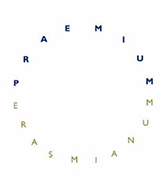Joeri N.M.E. Michielsen
Winner Dissertation Prize 2005
Dissertation
The ‘Nazification’ and ‘Denazification’ of the Courts in Belgium, Luxembourg and the Netherlands
Supervisor: Prof. mr G.-R. de Groot, Prof. dr H. Schneider
Nomination: University Maastricht, Faculty of Law
Report by the selection committee
Until now the discussion on collaboration with the occupying force during WW II centered mostly on statistical studies regarding convictions. As to deportations striking differences were observed. One way of explaining these differences is to study the attitude the governments adopted towards the occupant. In his comparative law study Joeri Michielsen examined how the law courts in the Netherlands, Belgium and Luxemburg reacted to measures taken by the occupant and how the judiciary was treated by the governments returned from exile after the war. The central question was whether the courts could use positive law in resisting the occupant’s measures and whether they in fact did. Dr Michielsen concludes that the Belgian courts following the ?Cour de Cassation? made efficient use of positive law. Thereby they effectively used the threat of adjourning their work. In the Netherlands a comparable lead by the Supreme Court was missing. Individual protest actions by judges were not followed by collective sanctions. Some protests were successful, but other measures by the occupying force took effect and were even helped by the courts, such as the Arbeitseinsatzen the Führerprinzip. In Luxemburg the judges were too few and the occupant?s measures too harsh for effective possibilities of protesting and collective threat. After the liberation the Luxemburg parliament approved the denazification measures of the returned government and the courts applied these measures in concordance with positive law.
